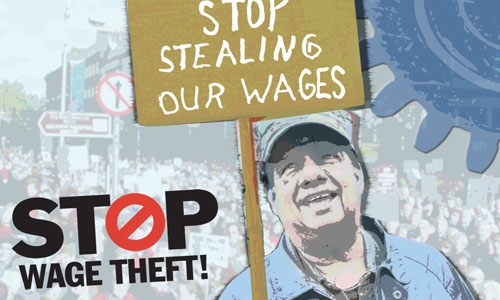Work performed before or after an employee's shift is work for which the employer must pay the employee. All time spent by an employee performing activities that are job-related is work time. This includes the employee's regular "on the clock" work time plus "off the clock" time spent performing job-related activities that benefit the employer. Almost all time that an employee is required to be on or at the employer's premises is work time for which the employer must pay the employee. This includes "voluntary work" that the employee decides to perform before or after his/her shift.
Working before and/or after a shift can include, but is not limited to, opening or closing the office, turning on or off the equipment, attending pre- and post-shift meetings, dropping mail at the post office, setting up or cleaning up, loading trucks or equipment, preparing a worksite, completing paperwork, meeting with management, and reviewing patient charts.
Working before and/or after shift may also including donning and doffing equipment that is required for the job. Donning and/or doffing time is paid work time if it is "an integral and indispensable part of the principal activities," which includes the following factors: (1) whether the activity is required by the employer; (2) whether the activity is necessary for the employee to perform his or her duties; and (3) whether the activity primarily benefits the employer. Whether the activity primarily benefits the employer can include the employer requiring employees to wear protective equipment or uniforms for the purposes of preventing OSHA citations, preventing or cutting-down on injury, preventing or cutting-down on worker's compensation claims, preventing or cutting-down on employees missing work, and/or preventing or cutting-down on work stoppages. If the equipment is required to be worn because of OSHA regulations, then it is more likely that donning and doffing the equipment will be considered "an integral and indispensable part of the principal activities." Further, if the employee works with hazardous and/or dangerous chemicals, the employer provides a cleaning service for uniforms, and the uniform and/or protective equipment cannot be taken home it is more likely that donning and doffing will be considered "an integral and indispensable part of the principal activities," and, thus, considered work time that should be paid.
If the uniforms can be taken home and worn into work, then it is less likely that donning and/or doffing of the uniforms will be considered work time. Uniforms worn by waiters, waitresses, janitors, and the like, while required, are not considered "an integral and indispensable part of the principal activities," and, thus, donning and doffing them is not considered work time that has to be paid.

Copyright The Lazzaro Law Firm, LLC. All Rights Reserved